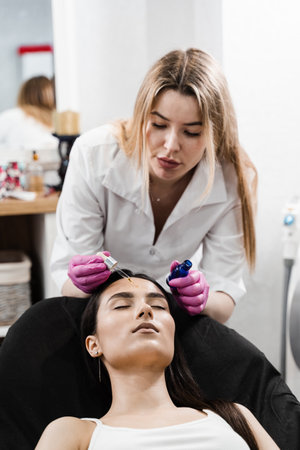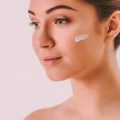1. Understanding Acne Scarring in Ethnic Skin
Acne scarring is a concern that resonates across all skin types, but its impact on ethnic skin—such as Black, Asian, Middle Eastern, and mixed-heritage complexions—carries unique challenges and nuances. Living in the UK, I’ve witnessed firsthand how our wonderfully diverse communities experience acne scars in ways that are not always acknowledged by mainstream skincare narratives. In ethnic skin, scarring often presents more prominently due to higher melanin levels, which can result in post-inflammatory hyperpigmentation (PIH) or darker marks that linger long after active acne has cleared. The scars may also be more pronounced texturally, with keloids or hypertrophic scars being more prevalent in certain groups. This prevalence is reflected in clinics across London, Birmingham, and Manchester, where practitioners regularly see clients seeking solutions tailored to their specific heritage and skin biology. By understanding these distinctive patterns of scarring and their frequency among the UK’s multicultural population, we can better appreciate why a nuanced approach is crucial when considering aesthetic alternatives for treatment.
2. Challenges Faced by Ethnic Skin Types
When it comes to treating acne scarring in ethnic skin, the journey is often accompanied by unique challenges that can feel both daunting and deeply personal. For those with darker or mixed skin tones—whether Black, South Asian, Middle Eastern, or of mixed heritage—the risk of complications such as post-inflammatory hyperpigmentation (PIH) and keloid formation is significantly higher compared to lighter skin types. These complications can impact not only aesthetic results but also one’s confidence and sense of self.
Understanding the Distinct Concerns
Ethnic skin contains more active melanocytes, meaning there is a greater propensity for producing excess melanin when the skin is injured or inflamed. This makes treatments that might be routine for lighter skin potentially risky for those with higher Fitzpatrick skin types. The following table summarises the key concerns faced:
| Concern | Description | Impact on Treatment |
|---|---|---|
| Hyperpigmentation | Dark spots left behind after inflammation or injury | Limits use of aggressive resurfacing; needs gentle, tailored approach |
| Keloids & Hypertrophic Scars | Thickened, raised scars due to overactive healing response | Certain procedures (e.g., deep microneedling, strong peels) may exacerbate risk |
| Irritation Sensitivity | Tendency for increased redness or sensitivity following treatment | Requires careful product selection and lower-strength modalities |
The Psychological and Social Impact
The emotional toll of visible acne scarring is often heightened by cultural norms surrounding beauty within ethnic communities. There’s an additional layer of pressure to achieve clear, even-toned skin, which can make ineffective or inappropriate treatments even more distressing.
Navigating Safe Treatment Pathways
Given these risks, it’s crucial for practitioners in the UK to possess both clinical expertise and cultural sensitivity when recommending aesthetic alternatives. A bespoke treatment plan that respects individual heritage and skin biology is not only safer—it’s empowering.
![]()
3. Evaluating Traditional and Modern Treatments
When it comes to managing acne scarring in ethnic skin, the British landscape offers a fascinating interplay between time-honoured remedies and cutting-edge aesthetic procedures. For generations, many people from South Asian, African-Caribbean, and Middle Eastern backgrounds in the UK have leaned on traditional treatments—think turmeric masks, aloe vera applications, and natural oils like rosehip or black seed oil. These remedies are cherished not only for their cultural resonance but also for their gentle approach, often favoured by families wary of harsh chemicals or invasive methods.
Traditional Remedies: Comfort and Continuity
There’s an undeniable beauty in these rituals. As someone who has grown up with stories of grandmothers mixing pastes in the kitchen, I understand their appeal. The tactile act of applying a homemade mask can be soothing, and ingredients like turmeric have some anti-inflammatory properties. However, scientific studies suggest their impact on established acne scars is modest at best—especially for stubborn marks like keloids or post-inflammatory hyperpigmentation that frequently affect darker skin tones.
Modern Aesthetic Procedures: Innovation Meets Caution
The rise of professional aesthetic treatments in Britain—such as microneedling, chemical peels tailored for Fitzpatrick skin types IV–VI, and laser therapies designed for melanin-rich skin—marks an exciting evolution. Clinics across London, Birmingham, and Manchester now offer bespoke services acknowledging the unique needs of ethnic complexions. Yet not all modern procedures are created equal. For example, traditional ablative lasers can trigger pigmentation issues in darker skin if improperly applied. That’s why British practitioners increasingly favour non-ablative options or fractional lasers specifically tested on ethnic skin.
Effectiveness and Suitability: What Works Best?
Comparing these approaches reveals a subtle dance between safety and results. While traditional remedies provide comfort and continuity within communities, they may fall short for deeper scars. Modern treatments offer stronger evidence-based improvements but require culturally competent providers who understand the nuances of ethnic skin biology. In my experience—and echoed by many British dermatologists—a combination approach often yields the best outcomes: respecting heritage while embracing innovation.
A Personal Reflection
Ultimately, navigating acne scarring as someone with ethnic skin in Britain means weighing both worlds thoughtfully. Our rich heritage offers wisdom and self-care rituals; science brings new hope for visible change when guided by expertise. The key is finding practitioners who celebrate diversity and prioritise safe, beautiful results tailored to you.
4. Safe Aesthetic Alternatives for the UK Community
When considering acne scarring in ethnic skin, safety and effectiveness must always come first—especially within the diverse communities of the UK. Many people from Black, Asian, or mixed ethnic backgrounds are understandably concerned about hyperpigmentation, post-inflammatory darkening, and sensitivity. Fortunately, modern aesthetic medicine offers a range of non-invasive or minimally invasive treatments that are both culturally sensitive and widely accessible across Britain.
Non-Invasive Treatments
The safest starting point is always non-invasive options. These treatments require no downtime and carry minimal risk of pigment changes, which is crucial for ethnic skin types. British clinics often recommend:
| Treatment | How It Works | Cultural Acceptance |
|---|---|---|
| Chemical Peels (Superficial) | Uses gentle acids to exfoliate dead skin cells and improve texture. | Widely used; lower-strength peels are popular in UK’s multicultural clinics. |
| Microneedling (Dermaroller) | Tiny needles stimulate collagen production without heat or harsh chemicals. | Very popular with clients seeking subtle, gradual improvement. |
| Medical-Grade Skincare | Prescription creams (like retinoids) and serums target pigmentation and support healing. | Often prescribed by NHS dermatologists; trusted by all backgrounds. |
Minimally Invasive Options
If you’re looking for slightly stronger results but want to avoid aggressive lasers or surgery, these minimally invasive alternatives are highly regarded in the UK:
| Treatment | Benefits for Ethnic Skin |
|---|---|
| Platelet-Rich Plasma (PRP) | Uses your own blood plasma to accelerate healing; very low risk of pigmentation issues. |
| Radiofrequency Microneedling | Mild energy heats deeper layers without damaging surface skin, reducing scar depth safely. |
Navigating Cultural Sensitivities
Practitioners in the UK increasingly recognise the need for personalised care. It’s common to see clinics offering patch tests before any treatment begins, ensuring reactions are minimised. Additionally, many aesthetic specialists now receive specific training on treating darker skin tones—something I found incredibly reassuring during my own journey.
Choosing the Right Clinic
It’s worth noting that reputable clinics will openly discuss your ethnic background and unique needs, rather than adopting a one-size-fits-all approach. Look for practitioners registered with professional bodies such as the British Association of Dermatologists or the Joint Council for Cosmetic Practitioners for added peace of mind.
5. Personal Experiences and Professional Insights
Heartfelt Stories from Real People
Living in the UK’s vibrant multicultural communities, I’ve had the privilege of listening to countless personal journeys about overcoming acne scarring on ethnic skin. For instance, Amira, a British-Pakistani university student from Manchester, shared how her self-esteem blossomed after trying microneedling under the guidance of an experienced practitioner who truly understood melanin-rich skin. “I felt seen and safe,” she told me, “and for the first time, my skin looked like mine again—just clearer.” Her story resonates with so many others navigating similar paths.
Practitioners’ Trusted Advice
From the professional side, Dr. Rajiv Sharma, a Harley Street dermatologist, emphasises the importance of tailored care: “Ethnic skin is more prone to hyperpigmentation if treated aggressively. In my clinic, we use gentler modalities like chemical peels with lower concentrations and always carry out patch tests first.” This thoughtful approach has led to remarkable outcomes for his patients while minimising risks unique to darker skin types.
Lessons Learned and Successes Celebrated
Over time, both patients and practitioners have learned that collaboration and open communication are key. Many have found that combining advanced treatments like fractional lasers (designed specifically for deeper skin tones) with at-home routines using trusted British brands yields the best results. The success stories are not just about smoother complexions—they’re also about confidence regained, community support, and celebrating every small victory along the way.
6. Empowering Choices and Building Confidence
When it comes to managing acne scarring in ethnic skin, making informed decisions is truly empowering. The beauty of Britain lies in its vibrant diversity—skin tones and backgrounds that tell unique stories. As you consider aesthetic alternatives, remember to consult practitioners who appreciate the nuances of your heritage and understand how best to treat your specific skin type.
It’s important to know that the safest and most effective treatments are those tailored to individual needs. Seek out reputable clinics with experience in treating ethnic skin, and don’t hesitate to ask questions about safety records, expected outcomes, and aftercare. Trustworthy professionals will always encourage dialogue, guiding you through options such as microneedling, gentle chemical peels, or advanced laser technologies suited for darker complexions.
Celebrating Self-Appreciation
Your journey towards clearer skin is not solely about aesthetics; it’s also a testament to self-care and self-worth. Embrace your natural beauty at every stage of the process. Acne scars do not define you—they are simply one part of your story. Celebrate the resilience and character they represent while seeking solutions that make you feel comfortable in your own skin.
Finding Strength in Community
Britain’s multicultural communities offer a wealth of shared experiences. By connecting with others—whether through local support groups, social media forums, or trusted friends—you can gain practical advice and emotional encouragement. Stories of healing and confidence-building are powerful motivators. Together, we can foster an environment where everyone feels seen, heard, and supported.
A Brighter Path Forward
Choosing the right treatment for acne scarring is about more than clinical results; it’s about feeling empowered, respected, and confident in your choices. Take pride in your heritage and your journey. With knowledge, professional guidance, and community support, you can step forward with assurance—knowing that both your individuality and well-being are cherished across the rich tapestry of British life.


